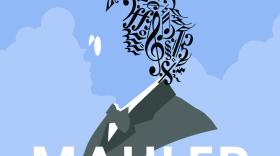Not all classical music is, shall we say, classic
During a recent social media debate regarding attitudes toward the vandalism of public art, Beth Lano, associate principle horn with the Las Vegas Philharmonic, chimed in to say that while she may not like playing most compositions by Wagner and Tchaikovsky, that doesn’t mean it will influence how she performs those works.
“It was art that was made, and it deserves the best possible showing,” she added. “It isn't about me and my personal peccadilloes by that point."
An admirable notation, but back up for a second: Who knew classical musicians might not like performing Tchaikovsky or Wagner? Though it stands to reason that they would have favorites, one still imagines them glowing with love of the classics — that’s why they’re classics, right?
“Every time I play Wagner I feel like I've been beaten up,” Lano says. “I feel like he personally didn't like a horn player somewhere. While he had a great harmonic sense and thematic abilities, he overwrote, over-orchestrated. The stuff sounds really good, but it doesn't make sense as a player, specifically a horn player.”
Mostly, she says, it's the composer's seeming disregard for the physicality of the French horn, writing its parts as if they were for a stringed instrument, not a lung-powered one, that's frustrating.
Someone like Mahler, who wrote heavily for horn and brass, is different, she says. "I enjoy playing it. ... I feel like I had a workout and a sense of accomplishment."
There are pieces that are thematically very difficult or different, says Philharmonic oboist and UNLV professor Stephen Caplan, pointing out that the oboe solo in Tchaikovsky's Fourth is "very exposed, so delicate," with 48 notes, each one to be played with perfect legato (flowing, without breaks between notes). "The other category is warhorses, pieces musicians have played so many times. I literally played The Nutcracker 24 times in one season. Messiah, I've played it a dozen times. But,” he adds, “I'm one of the people who sees the glass half-full. The Ruslan and Lyudmila overture (by Mikhail Glinka), once I'm actually playing it, I really like it and think, ‘Wow, there is a reason this piece is played so much.'"
Caplan says that he enjoys performing impressionistic symphonies — Ravel and Debussy — and that he also loves playing contemporary music. "It feels like a different person I'm getting to know. Even if you're reluctant, you get introduced to a whole new world."
For DeeAnn Letourneau, violinist and Philharmonic concertmaster, a narrative is preferred. "I don't like it when it doesn't make sense. When there is a real purpose for what I'm doing, I can get into that character, almost like acting."
She appreciates the intricacy and “direct purpose” of modern composer Schoenberg. With Philip Glass, she feels "like a cog in a wheel" and wants to do more than what the music allows for — even though, she says, "If I was listening to it, I would think it was just fantastic.
"Bach is really, really fantastic, probably my favorite composer to play. Bach almost represents all music ever written. The complexity of what he did." Mozart and Beethoven are other top picks. "I just love playing Brahms. Emotional, musically complex. So full huge and big brass. It's so fantastic."
Philharmonic percussionist Robert Bonora sees it otherwise.
"I'm not a big fan of performing Brahms," he says. "The string-writing orchestrations are wonderful. From a percussion standpoint, I just don't enjoy it." His dislike is so noted by his peers that they'll joke with him: You like that about just as much as you like playing Brahms.
What does he like? For one thing, the unusual adventures often presented by contemporary music.
"As percussionists we're challenged to find the instrument the conductor is going for and the sound that the composer is going for. Last year, a piece required crystal goblets. Very specific. Among the nine different crystal goblets in our house, only one was the pitch I needed, the one that would vibrate at the specific frequency. It's challenging and it's fun sometimes. We've gone to junkyards to find specific pitches, or Michael's. We've become professional scavengers.”
Years ago, he says, there was a cue was in the middle of a piece to knock over a box of junk, but doing so carefully so as to get a specific sound: "We had to calculate the junk falling."
The Las Vegas Philharmonic presents Cabrera Conducts the Music of John Williams this weekend, at 7:30p on Saturday and 2p on Sunday at The Smith Center, $30-$109, thesmithcenter.com








